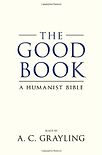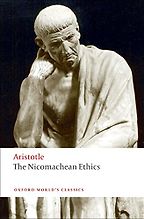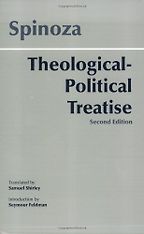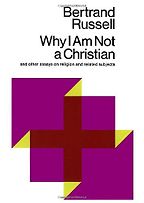We’re considering, by way of five classic philosophical texts, the broad theme of “being good” – what it means to be good, how to be good, what is constitutive of the good agent in philosophy. In your latest book, The Good Book: A Secular Bible, you write “to determine what the good is is truly the master art of living”. What do you mean by that, and to help us frame this conversation, what do we mean when we think about notions of goodness?
It’s Aristotle’s idea that the master art of living is the quest for the good life, and I phrase it that way – that the quest is for the good and well lived life. The life that feels good to live, which feels worthwhile, because it moves towards goals that one recognises as truly valuable, and which also have a good impact on lives around one’s own life, because we are essentially social animals, and we cannot be oblivious to the fact that our choices and actions have impacts on other people. So the good life, the well lived and worthwhile life, is one which has this inner and outer perspective. The inner perspective is that it really does feel worthwhile living it, and the outer perspective is that its impacts on people around one are constructive, positive ones.
What are some of these goals of goodness?
That’s a very interesting question. For most of human history people were told that there was one great good, one right answer, one correct way to live – a one-size-fits-all, top-down model of the good life. What the Enlightenment taught us is that there are many kinds of good lives – as many good lives as there are people to live them, if they have the talent and the thought, the engagement and the reflectiveness to make good choices about what constitutes a good life, given those talents. This really is key, because although we do share a great deal in common with one another as human beings, there is also a great diversity of interests and abilities. It’s by fulfilling the best capacities that we have, by becoming the best people we can be, that we make lives that are generally good for each of us.
You make the distinction in some of your other writings between the good life – which is presumably sunning oneself on a beach in Honolulu – and the Good Life, a life of virtue and good deeds. You could also phrase that as the Herculean choice between duty and pleasure. Does that imply that we should follow Hercules and choose duty over pleasure every time?
In that book, The Choice of Hercules, where I discuss the tension between the good life in the sybaritic sense of wine, women and song, and on the other hand the Good Life in the sense of the puritan virtues, my argument is that they are both important, and that a blend of the two is constitutive of a third and better version of the good life.
Pleasure is obviously something that we all enjoy. We all know that if we pursue pleasures to excess they turn into something painful. This is something Epicurus recognised a long time ago in his remark “All things in moderation”. But rest, enjoyment, laughter, fun, dancing, sunshine, the beach – these all have their place in the well lived life, the life that feels good to live. But I think it’s a much more significant fact about us that as rather intelligent and creative creatures, humans do need goals, they do need a sense of movement in the direction of something which is worthwhile. It may not be some tremendous thing like building the great skyscraper or writing the great novel or composing the great symphony, it might be something which from the outside looks a bit more modest, like looking after your family well, educating your children, being a good, loving, affectionate and positive partner in life to your spouse – but these things are intrinsically worthwhile.
When you look at the inner texture of lives where there is affection, a sense of achievement and the realisation of goals – however modest they might look from a third party point of view – these are things that make this very brief existence of ours have a certain quality that makes them acceptable to ourselves. Of course, one would want people to seek out their greatest talents and to exert them, and try to do something that was even more of an achievement from their point of view. That would be wonderful, and we know also that it’s the endeavour to do it, and not necessarily the actual achievement, that does add great value to life. But a good life doesn’t have to be strenuously good.
Is goodness absolute or relative? What’s morally desirable to one person or culture is morally reprehensible to another.
You will have noticed so far that I’ve been quite careful to talk about a good life as one that feels good to live, that feels worthwhile, that has a satisfaction to it, and which is positive in its impacts on other people. So I’m there using expressions which flesh out the conceptions of good at work, and don’t rely on some antecedent notion of the good, although it’s of course a very important part of the philosophical quest to try to understand this extremely rich and capacious notion of the good.
We use that word to talk about many different kinds of things – good meals, good music, good weather, a good person. And of course those usages do have some things in common with one another, but the one which is of key importance to us is the nature of the human existence which in itself, when you look at it in its totality, has a lived quality and a value in its effects which we regard as positive. The idea of the good or goodness as an abstract entity, out there in the universe somewhere, is not actually in play. Instead, we’re talking about something much more active, a bit more down-to-earth but still very substantial.
So when you think of good in your mind, does it have a lower case or upper case “G”?
I think I has a lower case “g”, because we are always going to ask ourselves: Good in what respect? Good to what end? Good for what purpose? We’ve got to recognise it as something that we understand in the context of other things, and in particular in the context of the idea of this thing we understand as human life, with all its demands, our frailties, our incapacities to achieve the very best of things, but nevertheless something that could be made to be genuinely worthwhile.
Let’s begin on your book selection with Aristotle, the daddy of ethics, or one of them at least. In his Nichomachean Ethics, he poses the Socratic question of how to live best.
It was of course Socrates who challenged his time, and has challenged us all, with the great question: What sort of people should we be? How should we live? And by implication, what kind of society is the right kind to ensure that individual flourishing can occur? That question which Socrates asked was not hijacked but was at least developed by Plato into a set of views that we might not agree with because they’re a bit too idealistic. Also, the society that he envisaged as a setting for the good life is a bit too much like fascism for most of our tastes now.
But Aristotle, who is a more down-to-earth character, has a much more realistic grasp of what is possible for human beings to do. He said the great question is how we should live well, so that we live a good life, and he came up with a very positive response – which is to say that what distinguishes us from the rest of the world is our possession of reason. It’s in the application of reason to circumstance that we do our best. So if we navigate our way through situations where we’re obliged to make certain sorts of choices or respond in certain ways, using our reason, then we will in general be expressing the virtues.
For example, you find yourself in a situation where courage is called for. What is courage, in that situation? Well, it is the middle path between rashness on the one hand and cowardice on the other. Or suppose you’re asked to be generous? What’s that? In the circumstances, it is not being mean and not being profligate, but something in between. People have said this sounds like a middle class, middle aged, middle brow approach to the virtuous life, but in a way it isn’t because [Aristotle] was very conscious of the fact that circumstances differ, our capacity to respond to them differs from individual to individual, and therefore the real expression of a moral life is this serious, sincere endeavour to do the best in your circumstances.
He identifies four all-encompassing qualities of being a virtuous character, from being a great soul to being a good friend.
Indeed, friendship is a very important thing for Aristotle, and perhaps one of the most beautiful things in the Nichomachean Ethics is his discussion of friendship. That discussion may push the concept of friendship just that little bit too far, because he says we must treat a friend as another self, so we identify our friend’s interests with our own. That seems to fly in the face of the thought that we should give our friends some space, recognise their individuality and not make too many demands on them to be like us. So you could have a conversation with Aristotle – and I think all great ethical works are ones that we can have a conversation with.
But he’s dead right that if we become friends with our children as they grow up, become friends with our parents as we grow up, become friends with our lovers or spouses, our comrades, our colleagues, then even if they remain those things – if your lover remains your lover, but you become a friend with him or her – that is a human achievement of the very highest order. He’s right about that, and it sets us a worthy goal.
He also talked, as you point out, about magnanimity. There is a wonderful expression in the ancient Greek – the “megalopsychos”, which sounds like something certifiable but it just means magna anima [great soul], from which we get our word “magnanimity”. The magnanimous person, the great souled person, is a person of generosity and sympathy. I think this is very beautiful, and underlies almost all humanist ethics – the idea that we premise our engagement with other people on the most generous and sympathetic understanding we can have of human nature and the human condition. That we make allowances for being human. The Greeks have this marvellous idea, so different from the theological moralities where sin is a stain on your soul which you have to work hard to scrub off, and perhaps never quite get rid of. The Greek conception is what they called hamartia, which is the mistaken shot. You shoot your arrow at the target – if you miss, what do you do? You take better aim next time.
The academic Ronna Burger said of the Ethics that “the end we are seeking is what we have been doing”. That echoes something you were saying earlier. In short, that the end we seek is the means through which we seek it.
Indeed. That’s a very good way of putting it. The well lived life is the well lived life. The well living of life is what it is to live life well. The quest of the good is itself good. This idea is I think a tremendously important one, that one can easily demonstrate by saying: The reason why you admire your friends is not because of what they’ve achieved, but because of what you know they would sincerely like to achieve. We know that if we were to measure the value of a human life only by its successes, then there would be very little value in the world. But we ought to value, and I think do value, people in terms of what they authentically are trying to do and to be. And it’s that endeavour which is the serious thing.
Introduce for us please Spinoza’s Tractatus Theologico-Politicus.
This is a work which is perhaps of all Spinoza’s works the most accessible, because he’s quite a difficult and technical writer, and yet he is a tremendously significant figure for our modern age. Some people have identified him, I think rightly, as being the chief wellspring of the Enlightenment, although people didn’t quote him overtly or reference him too much because he was regarded with a certain horror as an atheist. Somebody once described him as the most God-besotted of all philosophers. But in this work, he commits himself to the view that people have used in order to interpret him as an atheist. One of the key things that comes out of it – the perspective that people took from it, and which made him an important figure in the Enlightenment – is this idea of the responsibility of the individual.
He put it slightly differently in the Ethics – which is his major work and a much more substantial work even than the Tractatus – where the final two books are called “Of Human Bondage” (which is where Somerset Maugham got his book title from) and “Of Human Freedom”. In the latter he talks of human freedom [as] resulting from the realisation that we are not at all free, that we’re determined, that everything we do is the outcome of necessity, that we’re all part of this great single thing – this one great reality which operates in an entirely necessary way out of its own laws. When we recognise this, we cease to strive in a futile way against the impossibilities – we recognise that our desire is the source of our suffering. It’s a rather Buddhist view in a way, and similar to a view that Schopenhauer much later took. And the realisation that this is so, and the acceptance that we have to act in conformity to necessity, is what makes us free.
You mention God-besottedness. The Tractatus is a critique of organised religion – Spinoza says that the goal of religious philosophy is obedience, whereas the goal of philosophy is the quest for rational truth. These are issues you’ve written about and discussed, for instance in What is Good?. How would you paint, with a broad brush stroke, the distinction between religious and humanistic ethics?
I take it that the root of humanistic ethics is the idea that we are each of us ultimately responsible for our moral choices, for our ethics – that is, the answer we give to the question “what sort of person are you going to be?”. Whereas the root of the theological moralities is that there is a demand imposed on us from outside, a transcendent sort of demand, and that our morality is the act of response or indeed of obedience to that demand. These are two very opposed ways of thinking about the moral life. As a humanist myself, I’m committed to the idea that we should encourage people to accept the challenge of the first way of thinking about things.
One way you could dramatise this a bit is to appeal to something that I find more attractive than many of my contemporary philosophers, which is some of the insights of existentialism in the last three quarters of a century. Namely, the idea that our existence precedes our essence, in the sense that we find ourselves existing and we have to answer the challenge of what kind of person we’re going to make ourselves, what sorts of constructions we are going to erect in our best endeavours. Famously, the existentialists said that dignity and creativity and indeed love – affection for our fellow human beings – are things worth pursuing in their own right, and by pursuing them we make ourselves, according to our individual capacities. This I think is where the deep autonomy of the human position has its greatest value.
And this all stems from the Enlightenment, and Enlightenment values?
This is re-asserted – rediscovered, perhaps – in the 18th century Enlightenment. I see Western history as being one with a very long intermission between the great conversation of classical antiquity [to the 18th century] – from Plato and Aristotle, right on to late stoicism, which came to an end with the triumph of Christianity over the European mind, and through the process of reformation and scientific revolution in the 17th century, we arrive at this great insight of the 18th century, which is that it’s wrong to think there’s a one-size-fits-all story. We must recognise diversity, and in particular we must allow the autonomy and individuality of the person, with his or her rights, entitlements and responsibilities, to be the determiner of how they are to live.
That’s a good segue to John Stuart Mill’s famous work On Liberty, in which he discusses precisely these issues of the individual’s moral freedom from constraint.
On Liberty is a very important document, and one which, because of the clarity with which one can read it and its brevity, is slightly passed over. First-year students are asked to read it, but then it’s thought not to have very great philosophical substance. And sometimes it’s criticised on the grounds that Mill commits himself to saying that reading Aeschylus is of much higher value than going to the pub for a pint of beer. Whereas going to the pub for a pint of beer is sometimes a very pleasant thing, and much more pleasant than reading Aeschylus.
Especially for a first-year student.
Indeed. So people miss a really significant point that he makes, that allowing people the opportunity and space to experiment in quest of the good – and to do so in a way that frees them from the worst kind of tyranny, which is the tyranny of public opinion and oppressive attitudes – is of the very essence in human progress, and that you only get human progress if you will allow a thousand flowers to bloom in that respect. So he’s asking for something very big, because it’s right across all sorts of boundaries. It’s not just a question of education, it’s also a question of sexual morality, and it’s a question of allowing people to arrange relationships with others. [Mill] would have found it, I think, very acceptable indeed that we in our own time have come to be accepting of people who are gay. He would have regarded that as paradigmatic of how we should be open to allowing different sorts of experiment in human relationships to flourish – and he would have spread that across the board. So I applaud that. I think that’s a very significant moment, and a very prescient and a brave one, given that it was a high Victorian period in which it was written.
No constraints on liberty… unless they cause harm to other people.
He says that we should be free under the government of the Harm Principle, which is that you shouldn’t do harm to others.
Central to Mill is also the idea of achieving well-being through individuality, through self-realisation and self-knowledge. He writes, “The free development of individuality is one of the leading essentials of well-being.”
That’s right. This again is the point about self-realisation, self-development, the fulfilling of the promise that you find in yourself. Self-knowledge is of course key to that. Indeed, the whole process is premised on having a good understanding of what your capacities are, and to some extent what your limitations are. And perhaps people should be encouraged not to take their limitations too seriously – they should push hard at themselves. This harks way back to the Delphic oracle: “Know thyself”. When you do have some sense of yourself, and some sense of the things that you might be good at and are interested in, then you should go for them.
Support Five Books
Five Books interviews are expensive to produce. If you're enjoying this interview, please support us by donating a small amount.
I’m very fond of quoting what Solon said to King Croesus, about a human life being only a thousand months long. And 300 of those months you sleep, 300 you do banal things. So you have relatively short time to make those self-discoveries and take a grasp of the opportunities that they present to you to do this thing that all these people – Aristotle and Spinoza and Mill – in their different ways are saying makes for the good life, makes for the life that’s worth living.
Your fourth pick is the French philosopher Denis Diderot. Tell us about Rameau’s Nephew.
Rameau’s Nephew is perhaps the most immediately accessible and readable of his works, given that so many of them are entries for the encyclopedia of which he and [Jean le Rond] d’Alembert was the editor.
It’s an imaginary conversation between a narrator – who may or may not be Diderot – and the nephew of the French composer Rameau.
Indeed it is. And it picks up on these themes which are central to the Enlightenment. This conversation, between what is perhaps the voice of Diderot and another individual, is the conversation of enlightenment in Kant’s sense. You remember Kant’s great essay, “What is Enlightenment?” He said we don’t live in an enlightened age, but we live in an age in which enlightenment is occurring – there is light dawning over the whole, and it comes when we accept the challenge to think for ourselves. Instead of obeying the priest, obeying the taxman, obeying the policeman, we begin to try to dare to be wise on our own account. If you wanted to be a spectator on a transaction, a thought process, an age where the dawn is coming up in the East, so to speak, here it would be.
This conversation between “Moi” and “Lui” happens in a Parisian café. Tell us about the Lui, Rameau’s nephew – he seems like a slightly morally dubious and avaricious character. He’s certainly obsessed with money.
Yes, money is certainly one of the themes, and that’s because of the materialism of society that Diderot was satirising. It’s very interesting. You’re seeing, in a divagatory and fragmentary way in the conversation, a reflection of how hard it is to get a coherent perspective on things. I think that was Diderot’s point. That in order to try to understand how destructive people are, how shallow the conversation of society is, and how easy it is to become focused on things like the getting and having of wealth, you lose sight of things that are very central to what he regarded as the great Enlightenment promise – which is that you can in the end yourself, as an autonomous individual, make good choices towards a good life.
Your final book, Bertrand Russell’s Why I Am Not a Christian, is based on a 1927 talk at Battersea Town Hall here in London. Tell us about Russell and his view of life.
Russell was an atheist, although he described himself as an agnostic, as [do] a lot of people do who are sensitive to the scientific requirement to be open-minded about even outré possibilities of things. It’s interesting that he should be a public sceptic of religion – that he should be prepared to talk and indeed to write about this matter – at a time when to do that was to put yourself a little bit beyond the pale. It was still the case even in the interwar period that people were regarded as particularly provocative to come out and speak with such clarity.
In this talk, published as Why I Am Not a Christian, he sets out the reasons that somebody who takes a very rational, philosophical, sceptical look at the claims, arguments and supposed evidences for a [Christian] outlook might apply. Given that Christianity was then, and had been for a long time, such a major influence in European culture, it was a brave and in my view very appropriate attempt to shake up people, to get them to think, get them to see that there could be serious, careful and considered reasons why you might not accept that outlook. So it’s a bold, brave statement for its time – and indeed it sets out quite a few of the reasons why somebody might not be [religious].
He goes so far as to say that organised religion is “the principal enemy of moral progress in the world”. Is that something you agree with?
I agree with it, yes. He was not alone, by the way, at that time in making that sort of point. George Bernard Shaw said, the day that I gave up my religious faith – which happened when he was a young teenager – I felt the dawning of moral passion. Russell and Shaw and many other people of their persuasion felt that the putatively religious European culture had been a disaster. It had fallen into the catastrophe of the First World War, which is why he and [Karl] Popper and Wittgenstein and a number of other people thought that the only possible remedy was education. This would be an education in how to think, in how to get away from just accepting these great slabs of traditional attitudes, which led to English bishops blessing English tanks and German priests blessing German tanks, and nobody ever seriously thinking about the underlying moral principles. That, I think, was a brave and correct thing to do.
Why are you not a Christian?
Because I’m not any kind of religious person. I’m an atheist, so none of the religions – Hinduism or Zoroastrianism or the belief in the Olympian deities or Christianity – appeal to me. You have to start quite a long way back, in belief in the existence of supernatural agency, before you get to any of the particular historical religions, and when I start that long way back I find every reason not to think that there are such agencies in the universe.
As Bertrand Russell himself would say to God, “not enough evidence”.
Not only is there no good evidence for the existence of supernatural agency – gods and goddesses and demons and so on – but there is a very great deal of evidence suggesting that this universe is not the kind of place that has those sorts of things in it. Very often people say you can’t prove that there aren’t gods and goddesses. And I say you can, if you understand the nature of proof in the contingent case. Of course, in the formal case of mathematics and logic, proof is something completely coercive – the conclusion is entailed by the premises. But in the contingent case what we mean by proof is test. We prove a bar of steel by bending it until it snaps. That’s the test of it. This is where we get expressions like “the proof of the pudding”. Proof in the contingent, empirical sense about the world around us is a matter of testing it. [This argument] is beautifully done by Carl Sagan with the dragon in the garage. Somebody says, I’ve got a dragon in my garage. You say, I’d love to see it. Ah, says the other person, it’s invisible. You say, let’s sprinkle some powder on the floor and see if we can see its footprints. Oh, it never lands on the floor. Well then we can hear its wings fluttering. It’s got silent wings. And so on and so on. Nothing whatever will count as a test, one way or another, for the claim that there’s a dragon in the garage. And that simple, straightforward but very deep observation applies to all claims to the effect that there are supernatural agencies or entities in this universe of ours. For that reason it’s not rational – ratio means proportion, so we’re proportioning evidence to judgements – to think that there are fairies at the bottom of the garden, gods on Olympus or Poseidon under the sea.
One turn of phrase I’m fond of is that it’s rational to explain the unknown in terms of the known, irrational to explain the known in terms of the unknown.
I think that’s a very good way of putting it.
We’ve been talking about being good, and how to be good. How do you strive for goodness in your life, on a personal and everyday level?
It’s exactly the same pattern we’ve been talking about earlier, which is the attempt to attain a certain degree of self-understanding about what one’s capacities are – what one can offer, what contribution one can make – and then trying to develop them, and trying to fulfil the potential, if any, that lies within them. Trying to be a responsible, cooperative partner in the great conversation of mankind – to take a share in that endeavour, and to try to do it with the degree of sincerity or authenticity which would make it really intrinsically worthwhile. [This way] one would feel on one’s deathbed that one hadn’t tried to pretend to be something that you’re not.
I’ve been extremely fortunate. I’ve been able to dedicate my life to reading and to study and to writing. I don’t pretend for one minute to be able to tell anybody else how they should live or what they should think. I think that would be quite wrong to do. It’s everybody’s own individual responsibility to do that. But you might be able to share with them things that you’ve learned or discovered, or to encourage them to read something or see something a certain way. To offer them a perspective which they might accept or reject, or that they might engage in that dialogue with the great minds of the past, with people who are eager now to debate and think about them, and write about them – in the hope, and indeed in the faith, that when people do think, when people do read, when people become a bit more knowledgeable about the past and about ideas, that their overall tendency is towards the good.
Interview by Alec Ash
April 6, 2012
Five Books aims to keep its book recommendations and interviews up to date. If you are the interviewee and would like to update your choice of books (or even just what you say about them) please email us at [email protected]
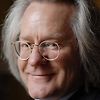
A C Grayling
A C Grayling is an English philosopher. Until June 2011, he was Professor of Philosophy at Birkbeck, University of London. He is also a supernumerary fellow of St Anne's College at Oxford University. Grayling is the author of around 30 books, including What is Good? and most recently The Good Book: A Secular Bible. In 2011 he founded the New College of the Humanities, an independent undergraduate college in London.

A C Grayling
A C Grayling is an English philosopher. Until June 2011, he was Professor of Philosophy at Birkbeck, University of London. He is also a supernumerary fellow of St Anne's College at Oxford University. Grayling is the author of around 30 books, including What is Good? and most recently The Good Book: A Secular Bible. In 2011 he founded the New College of the Humanities, an independent undergraduate college in London.

